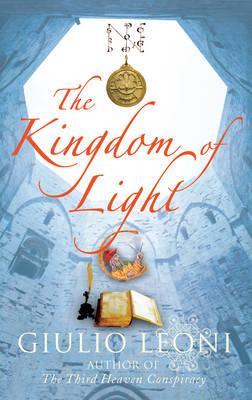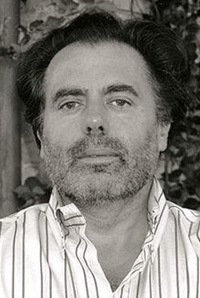GoodReads meta-data is 324 pages, rated 2.9 by 108 litizens.
Genre: Krimi

Verdict: Dan (Brown) started here.
The sleuth in change of the City of the Flower in the year of their lord 1300 is Dante Alighieri (1265–1321) is called to the site of a ruined ship in the marshes of the Arno with a manacled and dead crew. Is this a life boat from the Mary Celeste, or what? Turns out it is ‘or what.’
Florence is ruled by a small but typical committee — shutter! — whose members are Priors, and Dan is one of them. The others are busy with training seminars, bickering over trivialities, and writing this service onto their CVs while not raising a finger. See, it is a typical committee. Only Dan does any prioring work.
He finds on the ghost ship a strange clockwork, which he conceals, least some zealous churchman declare it devilish and destroy it. There is a lot of that around, i.e., churchmen declaring sliced bread the work of the devil, and devouring it least humble people be corrupted.
It seems the Catholic Church has never changed. It loudest exponents are the first to become corrupt to save the humble people from it. If that is too cryptic, think choir boys.
Dan noses around annoying everyone. Florence is full of travellers, many on pilgrimages to the Holy Land, and others to AC Milan away games. They are united by Latin and soccer. Then the murders begin among a group of those travellers. The plot got so thick this reader could not stir it.
Meanwhile a charlatan, no relations to Heston, is gulling credulous Republicans with a new Crusade to build a wall. They throw money at him which he happily collects. When Prior Dan sets out to unmask this scoundrel he finds a deeper and darker plot that harks back to the War of Guelphs and Ghibellinis. This conflict was largely familial though various doctrinal and territorial claims were made to cloak the tribal battle for precedence.
Dan is much less inclined than his fellow committee Priors to accept supernatural explanations for everything and even less inclined to favour destroying anything unusual as the devil’s work. The author brings home the suffocating and hypocritical environment of the time and place very well. While Dan is pious he sees all as part of the divine plan and wants to understand it, not whack it with a sword.
The last great Holy Roman Emperor was Frederick II (1194–1250) of Sicily who was very much larger than life. He travelled widely in the constituents of the Empire and promoted alchemy, astronomy, astrology, and the other arts and sciences of the age. The pope denounced him as the anti-Christ for this support. Freddy also negotiated with Saracens about access to the Holy Lands, and that made him anathema to the Pope. ‘Negotiation, never! The sword, always!’ cried the Pope in the name of the Prince of Peace.
When the Papacy prevailed and Freddy died, it grew avaricious and bloated, and by Dan’s time it was an enemy of Florence, seeking always to extend its grip on the secular city through the sectarian cloisters that abound in the city. (When I spent a semester at the European Universities Institute in Florence I had an office in a one-time monastery. Pretty grim.)
After the Guelphs defeated the Ghibs in 1294, a battle in which Dan distinguished himself, they then split among themselves into Black Guelphs and White Guelphs. The losers of this interniacine conflict went to Ontario where it was a balmy -2 degrees Fahrenheit when I checked this minute. Again the conflict was familial and personal rather than theological or ideological, though inevitably the contestants sought allies on these latter grounds.
The to’ing and fro’ing and the manners and mōres of high medieval Florence are interesting but confusing to the neophyte like me. I never did quite figure out what the point of it all was but nonetheless I will try to SPOIL(ER) it for readers!
The plotters were trying to rekindle the Ghibs. The purpose of the take over was to reclaim Freddy’s mirrors which his court astronomer had made to observe the transmission of light. This was sacrilege because light was God’s creation, or something. So it all had to be done in secret, in the dark. Get it? Why all this had to be played out in Florence was lost on this reader. But the mirrors were the cargo of wrecked ship. Secrecy required the whole crew to be murdered. [Gulp.] UPS could have delivered without all that. Not sure about DHL.
Dotted throughout the text are passages from and references to Dan’s masterwork, the Comedy, which took the name Divine after his death. I have listened to most of it in an Audible book while dog walking years ago. I once met John Ciardi, the foremost English translator of Dan, in that memorable 8 am poetry class that seemed like a good idea for the first and last time at registration.
 Giulio Leoni
Giulio Leoni
There a number of titles in this series and I read another one a long time ago. Like this one, I found that one intriguing but confusing. Don’t suppose I will rush to find another title, but if another crops up I would most likely add it to the Kindle.
Wikipedia tells us that Dan’s family was loyal to the Guelphs, a political alliance that supported the Papacy in opposition to the Ghibellines, who were backed by the Holy Roman Emperor. To pursue a political career the young Dan had to join a guild and the easiest entrance exam was pharmacy so he did that. It made some sense, because apothecaries in those days and for centuries to come also sold books, at first DIY book on diet and health, but others, too. That fits with bookish Dan.
Skip to content
